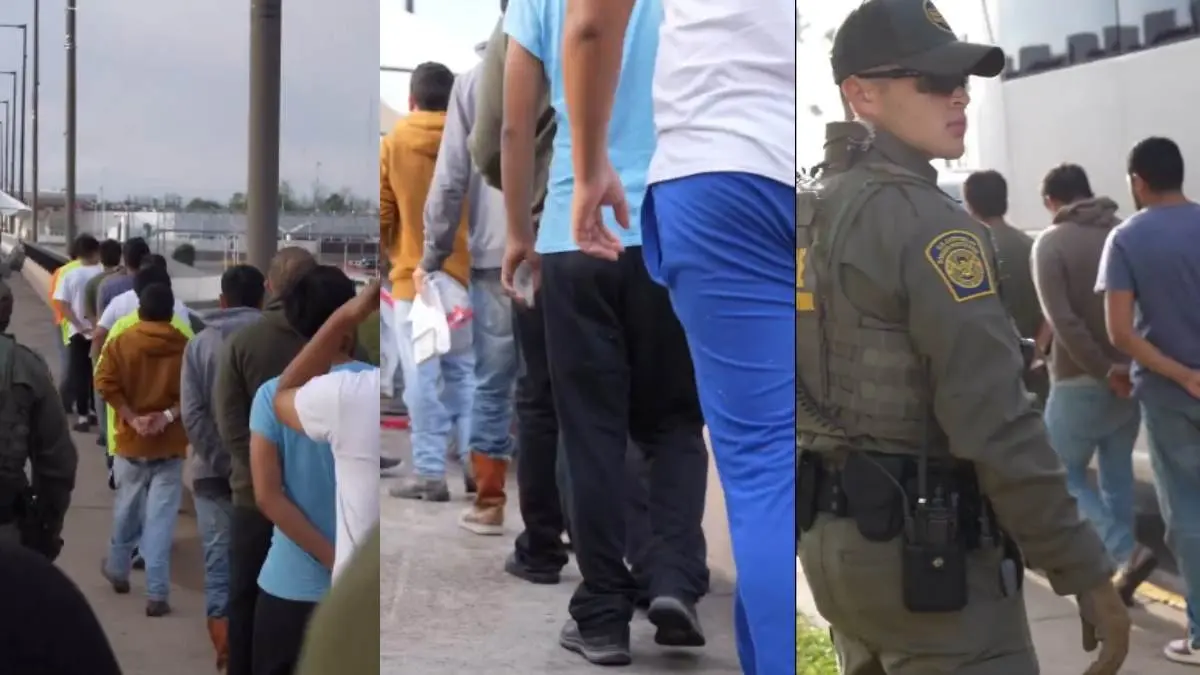Updated 2 May 2025 at 03:00 IST
Donald Trump Appointed Judge Blocks US Administration From Deporting Venezuelans
US judge blocks Donald Trump's plan to deport Venezuelans under Alien Enemies Act, ruling it is "unlawful" and exceeds the scope of the statute.
- India News
- 3 min read

Washington DC: A Donald Trump -appointed federal judge has permanently blocked the Trump administration from detaining, transferring or removing Venezuelans targeted for deportation under the Alien Enemies Act in the Southern District of Texas. According to reports, a US federal judge has blocked Trump's plan to deport Venezuelans from South Texas under an 18th-century wartime law, ruling that the invocation of the Alien Enemies Act was unlawful. The court's decision has served as a major setback for the Trump administration's efforts to deport immigrants identified as gang members without due process.
As per reports, the controversy began in March when Trump issued a proclamation claiming that the Venezuelan gang Tren de Aragua was invading the US. He asserted that he had special powers to deport immigrants identified by his administration as gang members without court proceedings. The proclamation triggered a flurry of litigation as the administration tried to ship migrants it claimed were gang members to a notorious prison in El Salvador.
US District Court Judge Fernando Rodriguez Jr ruled that the Trump administration's invocation of the Alien Enemies Act exceeded the scope of the statute and was contrary to the plain, ordinary meaning of the statute's terms. The judge noted that the law has only been used three times before in US history, most recently during World War II, when it was cited to intern Japanese-Americans.
"The Court concludes that the President's invocation of the AEA through the Proclamation exceeds the scope of the statute and, as a result, is unlawful," Judge Rodriguez wrote. The judge asserted that the provision has only been used during the two World Wars and the War of 1812, and that Congress never intended for the law to be used in this manner.
Advertisement
What Judge Noted
Judge Rodriguez found that the activities the administration accused Tren de Aragua of did not amount to an invasion or "predatory incursion" as required by the statute. "The Proclamation makes no reference to and in no manner suggests that a threat exists of an organized, armed group of individuals entering the United States at the direction of Venezuela to conquer the country or assume control over a portion of the nation," he wrote.
Advertisement
After the decision, the chairman of the Congressional Hispanic Caucus, Rep. Adriano Espaillat, welcomed the ruling, saying that the judge had made clear "what we all knew to be true: The Trump administration illegally used the Alien Enemies Act to deport people without due process." Lee Gelernt, the ACLU lawyer who argued the case, also praised the ruling, saying that Congress never meant for the law to be used in this manner.
Meanwhile, following the order, the Trump administration may appeal the ruling to the 5th US Circuit Court of Appeals, which is one of the most conservative appeals courts in the nation. If the administration loses its appeal, it could take the case to the US Supreme Court. The Supreme Court has already weighed in on the issue of deportations under the Alien Enemies Act, ruling that migrants alleged to be gang members must be given "reasonable time" to contest their removal from the country.
The Supreme Court's decision to weigh in on the issue of deportations under the Alien Enemies Act could have major implications for the Trump administration's immigration policies. If the court rules in favour of the administration, it could pave the way for the deportation of immigrants identified as gang members without due process.
However, if the court rules against the administration, it could limit the president's power to deport immigrants without court proceedings.
Get Current Updates on India News, Entertainment News, Cricket News along with Latest News and Web Stories from India and around the world.
Published By : Abhishek Tiwari
Published On: 1 May 2025 at 23:41 IST
